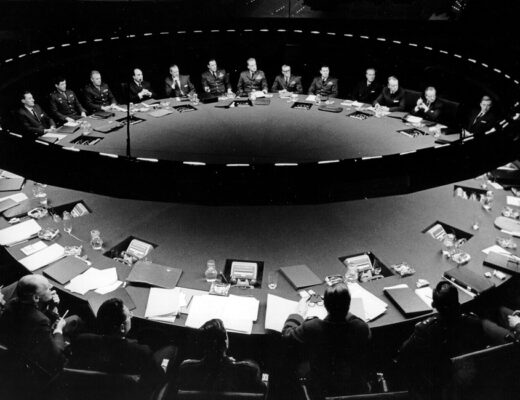Following nearly three years of an ongoing pandemic, everyone has a new understanding of isolation. After varying degrees of social distancing regulations and masking recommendations, even self-described introverts likely now have a different grasp on what it truly means to be alone. At least, we think we do. At NASA, a new astronaut team is preparing to embark on a journey that will push the limits of human tolerance for isolation — a trip to Mars.
Dr. Al Holland is a senior psychologist at NASA studying the effects of long-term space travel on the human psyche. Since the early 1990s, Holland has been working with people existing in isolated environments, from submarines to Antarctic expeditions to, eventually, the International Space Station. He even worked on the effort to rescue Chilean miners after a shaft collapse in 2010. Holland now specializes in working with astronauts and their families to lessen the burden imposed by space travel. As the space organization plans to send astronauts to Mars in the next ten years, his work has become especially important for the field. In The Longest Goodbye, we follow Holland and others at NASA as they prepare for this extended separation from everyone they know and love.
Along with Holland, The Longest Goodbye features two female astronauts who represent the past and future of prolonged space travel. Cady Coleman, a now-retired astronaut who logged more than 180 days in orbit, reflects the former; throughout the film, we watch video chats between Cady and her husband and son while she was on the ISS. Many of these chats are sweet — Cady reading to her son at bedtime, playing the flute with him from hundreds of miles up in orbit — but others highlight the profound difficulties of being a wife and mother living outside the atmosphere. On the other end of the spectrum is Kayla Barron, an astronaut selected in 2017 as part of NASA Astronaut Group 22, the rookie chosen for her enthusiasm and willingness for long-term travel (an inclination which isn’t wholly shared by her husband).
Director Ido Mizrahy’s choice to fix two female astronauts at the center of The Longest Goodbye is at once engaging and disappointing. Coleman and Barron are captivating women to spend time with, and the decision to focus on two women in the male-dominated field is a welcome one. While the film doesn’t outright ask, “But who’s taking care of your children?” the question is implied throughout, and the embedded microaggression can detract from the narrative’s more successful dramatic elements. Still, this unfortunate miscalculation doesn’t sidetrack the entire film, and it thankfully submits to The Longest Goodbye’s greatest strength: its structure. Where a work like this could easily get bogged down in jargony science or historical exposition, the film’s slick pacing keeps its compelling narrative moving forward. Holland’s work is smoothly interwoven with the women’s stories as he provides scientific context for the astronauts’ experiences, explicating the psychological effects of social deprivation in easily digestible bites. The result is a tidily packaged film, easily sliding its focus between the individual astronauts, their families, the shared struggles they face, and the future of interstellar communication.
Video chatting from the ISS is one thing, but a three-year trip to Mars presents a bigger challenge, as real-time communication will be impossible. In the meantime, Holland and his team are testing everything from virtual reality to robotic human replacements, but if the attempted eight-month mission that had to be aborted after four days says anything, they’re far away from any concrete solution. These are the challenges still facing our presently resurrected age of space travel, and The Longest Goodbye offers a sincere look at the hurdles and inevitable setbacks the diverse players of this mission to Mars are facing, though cut through with a notably optimistic view. As humankind continues in this course, we can only hope that outlook remains.
DIRECTOR: Ido Mizrahy; DISTRIBUTOR: Greenwich Entertainment; IN THEATERS: March 8; RUNTIME: 1 hr. 27 min.
Originally published as part of InRO Weekly — Volume 1, Issue 5.







